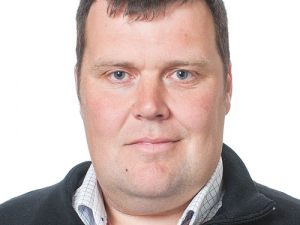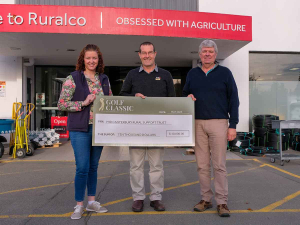The previous government issued a call-to-action to New Zealand: double primary production export earnings while maintaining or improving water quality.
Most people saw this dual challenge as contradictory, yet we must determine our ability to respond and commit to fulfilling both ambitions. I believe it is an achievable goal as we have world-best scientists working on the problem. The challenge to the new government is to give our scientists the resources to contribute to the task.
Pundits regularly promote the notion of moving up the value chain to increase export earnings. This, of course, is happening all the time. We should applaud companies such as Synlait with its slogan ‘Making more from milk’, which describes the strategy well. However, we must determine how much primary produce we need to achieve growth.
Bulk commodities dominate our primary sector exports and this is likely to continue for the foreseeable future, so increasing production is the only realistic way to double our primary export earnings.
However, this strategy inevitably leads to intensification and with that comes environmental impact, which we must understand if we are to develop appropriate mitigation strategies. The fate of nitrates attracts the most attention due to dairy intensification, but dairy is not the only sector negatively impacting our environment; other farming systems such as arable can also cause problems.
Phosphorous and sediment – pollutants chiefly generated from surface runoff – also degrade water quality. But without minimising their importance, we already have a better understanding of these contaminants. It is nitrate management that needs greater resourcing to meet the call-to-action.
Nitrate leaching from cow urine patches is a major contributor to groundwater contamination. Soil scientists must keep working to solve this issue, but farming system changes also require further attention.
We must be careful not to jeopardise our production integrity with too large a swing toward confining dairy cows, which could create negative sentiments in some markets. Sufficiently funded research will ultimately balance on-and-off-pasture dairy production and we will see hybrid systems being used more.
The recognition of the benefits of planting plantain in pastures (commercialised as Ecotain by Agricom with assistance from Lincoln University, Massey University and Plant and Food Research) to reduce nitrate leaching is a positive development to help pasture based dairy production.
More research is needed that helps improve production systems, retains nitrogen in the root zone and reduces other contaminant transfers. The nutrient budgeting model Overseer contains tools to analyse the likely outcomes of different management options. It’s not perfect but it offers much value and will improve with more work.
Land-use planners need more information; they must make difficult decisions about the appropriateness of farming activities in specific locations and about where to focus resources.
The only way we will meet these challenges is by improving our ability to identify appropriate farming activities for any given parcel of land. No one scientific discipline will solve this problem; it requires the summation of a wide range of work. To this end, the ‘National Science Challenge – Our Land and Water’ programme was set up by the previous government. It is a collaboration linking research agencies and stakeholders to work on enhancing primary sector production and productivity while maintaining and improving our land and water quality for future generations.
With the initial tranche of government funding due to run out in mid-2019, we hope the Government will prioritise additional spending in this area to ensure the work continues.
• Dr Blair Miller is group manager environmental research, Lincoln Agritech.











